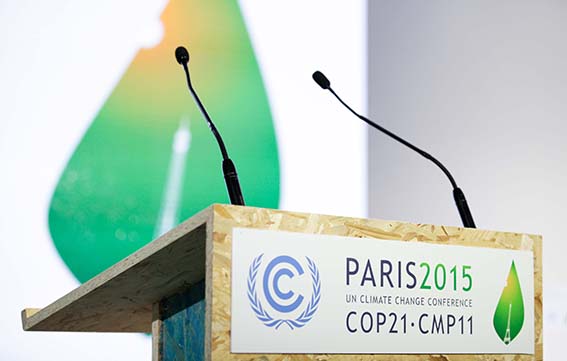100 days from the Paris Agreement: news roundup
We Mean Business
The first 100 days of a new administration are often seen as the first landmark moment for reflection and consideration of what the future may hold, looking at the signals given in the first crucial decisions.
100 days since the historic Paris Agreement, this process of reflection and analysis is well underway. Commentators and analysts are weighing up the early impact of the agreement, and the actions taken so far by governments, businesses, investors and civil society across the world.
We have selected the top stories from the last three months that give an early indication of where the global economy may be heading as a result of the first universal climate deal. .
Investors moving in the low-carbon direction
From fossil fuel divestment (where capital flows from fossil-fuel assets to low-carbon ones), to initiatives supporting climate risk disclosure – when it comes to the financial markets, it is undeniable that the words uttered in Paris are quickly turning into action.
Earlier this month J.P. Morgan became the last big bank to announce a halt to funding for new coal-fired power plants, following similar announcements by Bank of America, Citigroup and Morgan Stanley.
The task force on climate risk disclosure announced by Mark Carney and Michael Bloomberg in Paris started working less than two months after its launch. The aim of the initiative is to release a set of guidelines for companies to understand and disclose information about their exposure to climate change. A clear and standardized disclosure will help investors to make better decisions and companies to reduce their material risks. A first report is expected next month.
A report published by non-profit Ceres and Bloomberg New Energy Finance addressed the trillion dollar question: what is the estimated amount of capital needed to shift from a fossil-fuel powered society to a renewable powered one? According to these organizations, $12.1 trillion of investment is needed over the next 25 years for new renewable power generation. An incredible opportunity for companies and investors.
Finally, the green bonds market is expected to boom this year. With $14.4 billion issued in the first three months of the year alone, and new big actors like China entering the game, it is predicted that the total green bonds issuance this year will reach $100 billion globally. With money flowing to renewable energy, energy efficiency projects, and low-carbon buildings and transport, there is optimism about closing the climate finance gap.
A price on carbon
The Paris Agreement did not set a price on carbon, but the negotiations did deliver on the basis of functional carbon pricing systems. By showing the interest of companies that are already setting an internal price on carbon, as well as states and regions developing their carbon markets, Paris generated a clear and positive signal.
In particular, in the last three months we have seen North America moving, with the state of Washington beginning discussions around a state carbon tax and Canadian provinces signing a joint declaration to work on carbon pricing mechanisms. A leap of progress for a region that is going beyond its pioneering first steps.
Clean Power Plan
In February the Supreme Court of the United States decided to put on hold the Clean Power Plan, causing an incredible wave of reaction from states, companies and investors, showing support for the plan and its targets.
This was followed by a series of reports and analysis on the state of the U.S. green economy, which showed that there is considerable momentum behind the low-carbon movement. With solar power expected to grow 119% over last year, and renewable energy having accounted for all of the new generation capacity brought online in the first month of 2016, we are expecting to see more headlines reinforcing the positive, low carbon picture this year.
A Net-Zero target for the UK
Following a cross-party call to introduce a change in the energy bill that the parliament is currently debating, the UK announced it will enshrine a legally-binding net-zero target. The call was backed by NGOs and business leaders, proving once again the commitment of the business community to a low-carbon transition.
As we head toward the signing ceremony of the Paris Agreement, and with a number of key climate events coming up this year, we are looking forward to seeing more stories and analysis showing that the world is heading in the right direction, on a trajectory to a low carbon future.

